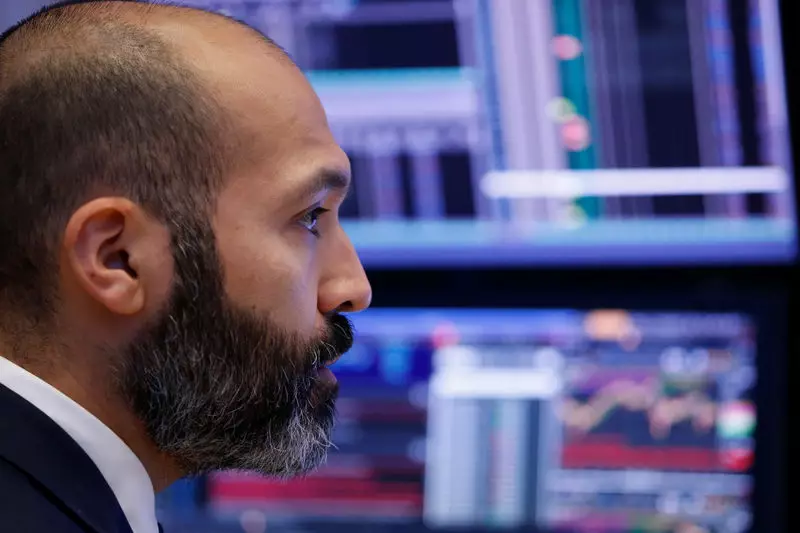The Fall of FTX: Caroline Ellison’s Sentencing and the Broader Implications of Crypto Fraud

The downfall of the cryptocurrency exchange FTX marks a pivotal moment in financial history, representing one of the largest financial frauds the United States has ever witnessed. Its founder, Sam Bankman-Fried, went from being a celebrated entrepreneur with a net worth soaring to $26 billion during the cryptocurrency surge to becoming a convicted felon sentenced to 25 years in prison. At the center of this scandal is Caroline Ellison, Bankman-Fried’s former girlfriend and the CEO of Alameda Research, who for her role in the elaborate scheme is poised to face sentencing.
Ellison’s journey intersects with Bankman-Fried’s narrative, as it was revealed that approximately $8 billion in customer funds disappeared in the collapse of FTX, rendering countless investors powerless as they watched their investments vanish almost overnight. This disintegration of trust in a sector already fraught with volatility laid bare the perilous nature of cryptocurrency investments and leads to a critical examination of the ethics and practices within the crypto industry.
In the courtroom, Caroline Ellison has become a crucial figure in the prosecution’s case against Bankman-Fried. Having pleaded guilty to seven felony counts, she has provided valuable testimony that sheds light on the operations and decisions within FTX and Alameda Research. Her trial participation, including over 20 meetings with prosecutors, has been characterized as “extraordinary cooperation,” which could substantially mitigate her sentencing.
As Ellison awaits the ruling from U.S. District Judge Lewis Kaplan, her legal team has made a compelling argument for leniency, contending that her cooperation should equate to a more merciful punishment. Unlike Bankman-Fried, who maintained a façade of innocence until his conviction, Ellison has expressed remorse and accepted her responsibility. In her tearful testimony, she described the “indescribably bad” feelings surrounding the fraud and revealed a sense of relief once the truth was exposed.
This contrasts sharply with Bankman-Fried’s defense, which attempted to paint Ellison as a scapegoat maneuvering to escape the fallout of a collapsing operation. The court’s decision regarding Ellison’s fate could significantly affect public perception of her involvement and moral standing in this saga.
Beyond the personal ramifications for Ellison, the FTX collapse has broader implications for the cryptocurrency landscape. It raised fundamental questions about regulatory oversight in a digital currency ecosystem often touted for its independence from traditional financial structures. The scale of the fraud has ignited debates among lawmakers and regulators about the need for stricter regulations in a space characterized by rapid innovation and fewer safeguards compared to conventional finance.
This debacle serves as a cautionary tale, emphasizing the importance of regulatory frameworks that can protect investors in an industry rife with risks and uncertainties. The allure of high returns in cryptocurrency investments often overshadows the inherent dangers, leading to a miscalculation of trust and due diligence.
As the legal repercussions for those involved in the FTX scandal unfold, one cannot help but wonder how the cryptocurrency industry will adapt. While Ellison’s cooperation with authorities may lead to a lighter sentence, it underscores a crucial shift toward accountability in the crypto space. Other former executives facing similar legal challenges, like Nishad Singh and Gary Wang, highlight a growing trend of cooperation among those embroiled in the scandal.
Policy-makers face a significant task ahead: balancing innovation in the crypto space with safeguarding the interests of investors. Legislation aimed at preventing similar occurrences must not only address the inadequacies of existing structures but also foster a culture of transparency and ethical practices among cryptocurrency platforms.
The fallout from the FTX scandal goes beyond individual accountability—it’s a reflection of the systemic failures within the cryptocurrency ecosystem. As Caroline Ellison awaits her sentencing, she stands at a crossroads, representative of a generation grappling with the duality of technological advancement and ethical responsibility. The industry must take heed of these events, advocating for better governance to ensure the promise of digital currencies does not culminate in further tragedies. Only through diligent reform and regulatory action can trust be restored, and the true potential of cryptocurrencies be realized.





